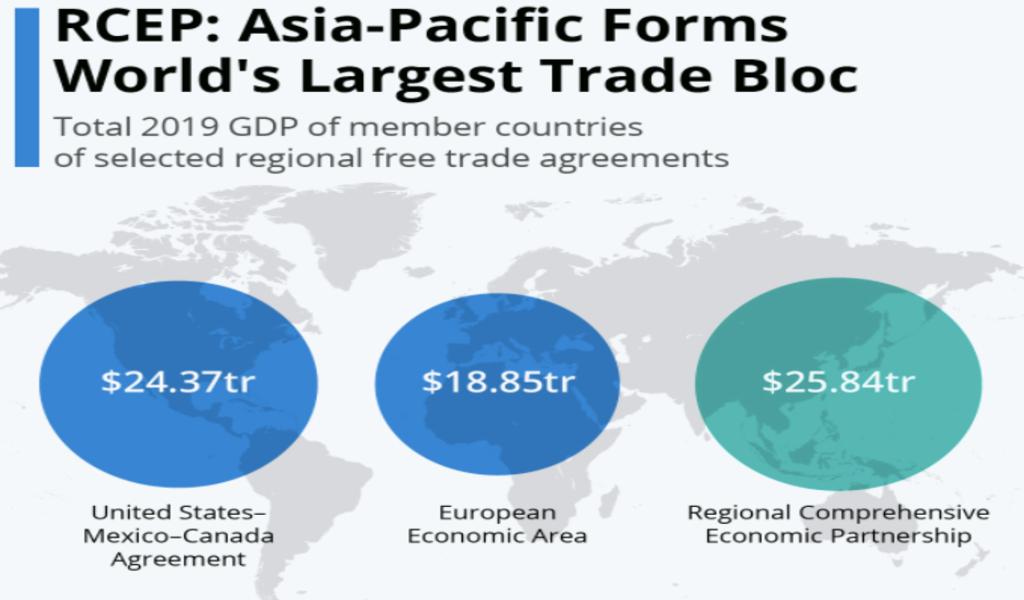Business
How Will the RCEP Impact Thailand’s Economy

(CTN News) – With the RCEP, Thailand will be able to increase its trade and investments with key economic partners in Asia Pacific. As a result of the trade agreement, the country will be able to increase its trade with East Asia, especially South Korea and Japan.
RCEP has already brought benefits to Thailand half a year after it came into effect. Thailand has experienced spikes in trade in early 2022 in fruits, vegetables, textiles, vehicles, and vehicle parts under the RCEP.
The 15 participating countries represent close to 30 percent of the world’s GDP, making RCEP the world’s largest trade deal. As one of the first countries to ratify RCEP, Thailand did so in October 2021, and the agreement went into effect on January 1, 2022.
What tariff cuts are offered to Thailand under the RCEP?
Thailand’s Ministry of Commerce estimates that RCEP will reduce tariffs on 39,366 items, 29,891 of them in the first phase.
Comparatively, South Korea has 11,104 items, Japan 8,216, China 7,491, New Zealand 6,866, and Australia 5,689. The RCEP also establishes frameworks for trade and investment cooperation, including intellectual property and e-commerce.
Thus, the RCEP Trade deal will increase Thailand’s trade and investment with many of its key economic partners.
Over the next 20 years, RCEP will reduce tariffs between participating countries by 91 percent, with many of these cuts taking place immediately, in its first phase.
Does Thailand need to be in the RCEP?
By introducing additional tariff cuts and a standardized trade framework across the region, RCEP will further boost trade and investment.
Thailand’s trade with RCEP countries was worth US$269 billion per year from 2016 to 2019, or about 60 percent of its total trade. The RCEP is likely to increase Thai trade within RCEP countries as well as the proportion of Thai trade within RCEP countries.
As a result of RCEP’s harmonized rule of origin provisions, RCEP-sourced inputs can be considered local when manufacturing finished products.
By lowering compliance costs as well as offering greater incentives and preferential tariffs, these provisions will encourage businesses to source from within RCEP countries.
How will the RCEP increase Thailand’s market access to East Asia?
China, Japan, and South Korea agreed to reduce Thailand’s tariffs in RCEP negotiations since Thailand already has free trade agreements with them. As a result, China, Japan, and South Korea are likely to increase their imports of Thai products.
The Bangkok Post reported the following notable tariff reductions offered by East Asian RCEP member countries for Thai exports:
- China: China will open its markets to 653 Thai items, up from 33 earlier. TV receivers, styrene, auto parts, and pepper are among the items. In 20 years, China will reduce tariffs on flavored pineapples, pineapple juice, coconut juice, and synthetic rubber to zero percent, as well as auto parts (including electrical equipment for lighting and signaling and windshield adjusters) and wire and cable for wiring harnesses used in cars.
- Japan: There will be a reduction in tariffs on a variety of Thai agricultural and food products. Within 16 years, Japan will reduce tariffs on vegetables (such as tomatoes, beans, asparagus, and garlic powder) from 9-17 percent to zero percent, frozen pineapple from 23.8 percent to zero percent, and roasted coffee from 12 percent to zero percent.
How will RCEP impact Thailand’s place in regional trade?
While Thailand will benefit from increased trade under RCEP text, other participating countries will also pose increased competition.
Thailand faces challenges competing with China for affordable manufactured goods, while tariff cuts on advanced products from Japan and South Korea could hinder Thailand’s efforts to move up the value chain.
Under RCEP, Thai exports to China, Japan, and South Korea are expected to increase, but the trade deficit with these countries, particularly China, may increase.
Related CTN News:
































